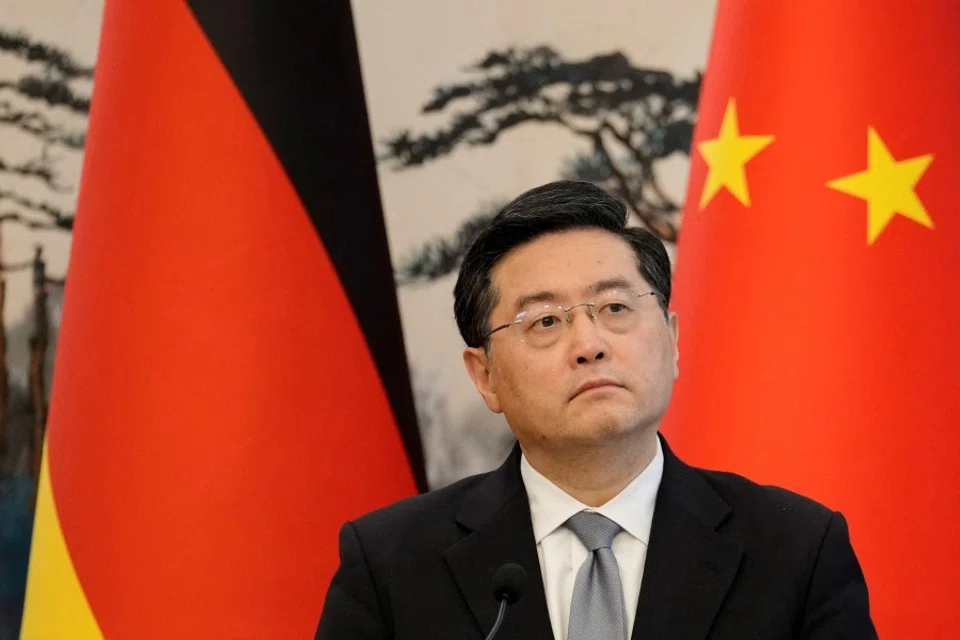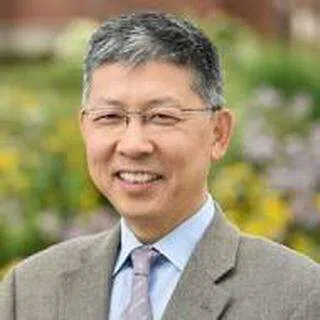The Qin Gang mystery and Chinese foreign policy
Director of the Office of the Central Commission for Foreign Affairs Wang Yi has taken over former Foreign Minister Qin Gang's position, but speculations are still rife about Qin's removal and the reverberations this will have on Chinese foreign affairs and politics. US academic Zhu Zhiqun weighs in.

When the 56-year old Qin Gang was appointed to head the Chinese foreign ministry in December 2022, he became the second youngest PRC foreign minister after Zhou Enlai, who served as the PRC's first foreign minister as well as the premier in 1949 at the age of 51.
Qin had only been in Washington for 17 months before returning to Beijing, making him the shortest serving Chinese ambassador to the US. He continued to make history and was promoted to be a state councilor in March 2023, becoming one of the youngest vice-national level leaders. Qin's rapid rise in China's foreign policy circle surprised many observers and reportedly antagonised some, especially his rivals within the Chinese foreign ministry.
He is widely believed to be a protégé of President Xi Jinping, having served as the protocol chief of China's foreign ministry to take care of the logistics of Xi's international travels. Obviously Xi was satisfied with Qin's performance.
However, Qin suddenly disappeared from the public view after 25 June, which generated much speculation and many rumours, ranging from internal power struggle to an extramarital affair. The Chinese foreign ministry cited "health reasons" to explain Qin's absence from the 56th ASEAN foreign ministers' meeting in Jakarta on 11-12 July. Since then the foreign ministry spokespersons have avoided directly answering any questions about Qin and his whereabouts.
He [Qin] remains a state councilor now, a vice-national level leader who outranks the foreign minister. It is unknown whether he might be stripped of this position later.

At a 25 July meeting of the Standing Committee of the National People's Congress (NPC), China's legislature, it was announced that Qin has been removed from his foreign minister position, replaced by his predecessor, veteran diplomat Wang Yi.
People are still wrapping their heads around what is going on in Beijing, but several things stand out that are worthy of attention.
Qin's mysterious disappearance may reveal some internal conflict in the foreign ministry. Only an individual with Wang's stature and authority can stabilise the situation.
A meteoric star leaves the stage
First of all, where is Qin Gang and what will be his fate? There is no official explanation why Qin was replaced. Qin's stint as the foreign minister is the shortest in the PRC history. He is no longer the foreign minister now, and he is not even listed as a former foreign minister on the Chinese foreign ministry website. However, the NPC announcement did not mention his other, higher position of state councilor.
It is interesting to note that the official announcement says Qin was removed from the position of foreign minister that "he concurrently held" (兼任的), which seems to suggest that foreign minister was not his most important job. He remains a state councilor now, a vice-national level leader who outranks the foreign minister. It is unknown whether he might be stripped of this position later.
Is he just seriously ill now and will return later as a member of the Chinese foreign policy establishment? Or is he under investigation and his political life is over? It is hard to know since no official information is available.
Wang Yi, a transitional figure
Second, Wang Yi turns 70 in October and is well beyond the regular retirement age of 65 for Cabinet-level officials. How long will he serve and who will succeed him?
Wang served as the foreign minister for a decade and became director of the Office of Chinese Communist Party (CCP)'s Central Foreign Affairs Commission (中央外事工作委员会) earlier this year. As China's top diplomat, Wang supervises the work of the Chinese foreign ministry. He is likely a transitional figure for a short period of time. Qin's mysterious disappearance may reveal some internal conflict in the foreign ministry. Only an individual with Wang's stature and authority can stabilise the situation.

It's going to be a busy time for Chinese diplomacy in the coming months. Notably, whether and how Xi Jinping will attend the G20 summit in New Delhi, India in September and the APEC summit in San Francisco, the US in November will be major tasks for the Chinese foreign ministry. Perhaps an old hand like Wang is needed to ensure the smooth handling of such important events. Viewed from this angle, Wang's temporary return makes much sense.
Typically, the annual NPC national conference in March is the time to reshuffle the government. So it is likely that a new foreign minister will be selected before then and will be confirmed during the March 2024 NPC conference.
Among the frontrunners for the next foreign minister is Vice-Minister Ma Zhaoxu, who has been in charge of daily affairs at the Chinese foreign ministry since early this year at the rank of a minister. At 60 this year, Ma could serve a five-year term before passing the baton to a younger diplomat. No one knows whether this will actually happen.
For his critics in the CCP, maybe Qin was not "wolf warrior" enough.
Chinese foreign policy likely to stay the course
Third, and perhaps most importantly, what does all this mean for Chinese foreign policy and Chinese politics in general?
Wang Yi's return injects a certain degree of stability and continuity in Chinese foreign policy. It might be the best option in the current circumstance. However, under Wang's strong leadership, Chinese foreign policy was often associated with the so-called "wolf warrior diplomacy". With Wang's return, does it mean that China will maintain an assertive approach in its foreign policy in the near future?

While serving as China's ambassador in the US, Qin demonstrated his "softer" side by taking shots from the free throw line at an NBA game and meeting farmers in the Midwest. For his critics in the CCP, maybe Qin was not "wolf warrior" enough.
In particular, the party will need to close the case without hurting President Xi's image. After all, Qin was promoted by Xi himself.
Though a highly visible figure, the Chinese foreign minister is an implementer, not a decision maker, of Chinese foreign policy today. A state councilor, Qin was not a member of the Central Foreign Affairs Commission, which is headed by President Xi with Premier Li Qiang as the deputy head. Qin's job was to implement policies made by top party leaders. In contrast, Wang Yi is the director of the Office of the Central Foreign Affairs Commission. Given his relatively lower status in Beijing's foreign policy circle, Qin's removal from the foreign ministry is unlikely to have any impact on the general direction of Chinese foreign policy.
Assuming that Qin is under investigation, this has become a domestic political matter or party disciplinary issue that will not affect China's foreign policy. It is clearly in the party's interest to minimise the fallout of the case on Chinese politics. In particular, the party will need to close the case without hurting President Xi's image. After all, Qin was promoted by Xi himself.



![[Photos] Fact versus fiction: The portrayal of WWII anti-Japanese martyrs in Taiwan](https://cassette.sphdigital.com.sg/image/thinkchina/3494f8bd481870f7c65b881fd21a3fd733f573f23232376e39c532a2c7593cbc)

